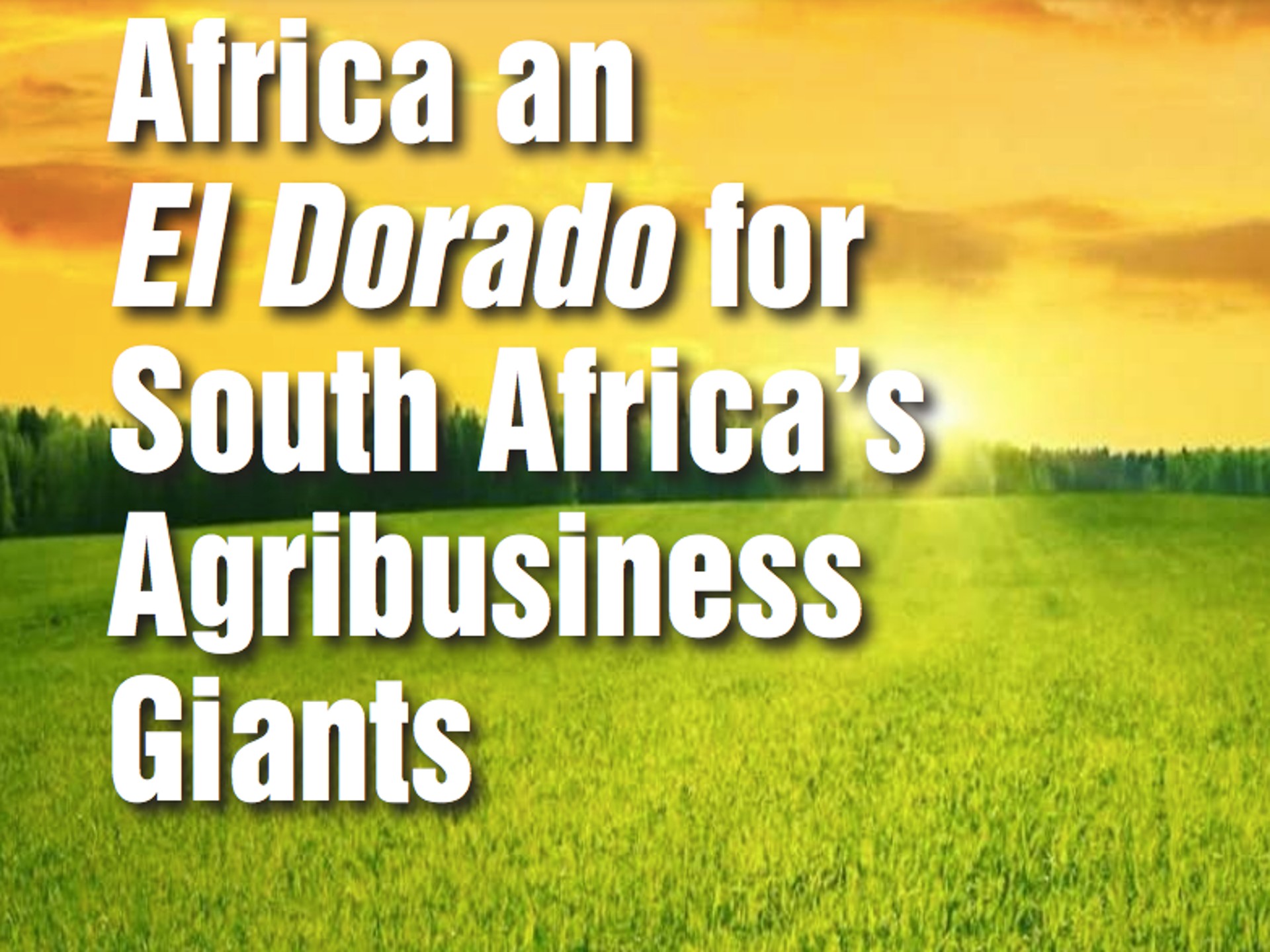Latest Resources

11 July 2016
Farm Input Subsidy Programmes (FISPs): A Benefit for, or the Betrayal of, SADC’s Small-Scale Farm...
This paper reviews the farm input subsidy programmes (FISPs) within countries belonging to the Southern Africa Development Community (SADC), to ascertain whether input subsidies have benefited small-scale farmers, have increased food security at the household and national levels, and have improved the incomes of small-scale farmers. Download the report.

20 June 2016
Green Revolution dead-end in Malawi: Two case studies— AGRA’s Pigeon Pea Project and Malawi’s Agr...
This report that the Alliance for a Green Revolution’s ( AGRA’s) sponsored pigeon pea project in Malawi was a dismal failure and its agrodealer project had some major and fundamental weaknesses. The AGRA pigeon pea project and the Malawi Agro-dealer Strengthening Programme (MASP) were implemented under AGRA’s Soil Health Programme (SHP) and the Programme for […]

18 April 2016
Zimbabwean smallholder support at the crossroads: Diminishing returns from Green Revolution seed ...
This scoping report is published jointly by the African Centre for Biodiversity (ACB and the Zimbabwe Small-Scale Organic Farmers’ Forum (ZIMSOFF). The report focuses on government and donor farm input subsidy programmes (FISPs) and seed aid in facilitating the spread of Green Revolution technologies and raises questions about who really benefits from these programmes. It […]

3 April 2016
Africa to lose heritage crops to multinationals ‘donating’ GM technology
The African Centre for Biodiversity (ACB), in a new report titled, “For your own good!” The chicanery behind GM non-commercial ‘orphan crops’ and rice for Africa shows that the GM industry is expanding its grasp to African traditional crops such as cassava, sorghum, sweet potato, pigeon pea, cowpea, banana as well as rice under the […]

4 December 2015
The expansion of the commercial seed sector in sub-Saharan Africa: Major players, key issues and ...
Sub-Saharan Africa’s seed systems are undergoing a profound transition, with the private sector leading the way. This report outlines some of the major trends and activities of the major players involved in this, from Monsanto and DuPont Pioneer to the Alliance for a Green Revolution in Africa (AGRA) and the broader donor community.

9 November 2015
Which way forward for Zambia’s smallholder farmers: Green Revolution input subsidies or agroecology?
In this report, we provide a critique of the Green Revolution Farmer Input Subsidy project in Zambia, looking at its impacts particularly for small holder farmers and their seed systems.

17 March 2015
Nuanced rhetoric and the path to poverty: AGRA, small-scale farmers, and seed and soil fertility ...
The report indicates a well-coordinated effort by selected states especially the US and in the EU, philanthropic institutions like AGRA, multilateral institutions like the World Bank, donors and multinational corporations (MNCs) including Yara, Monsanto and Pioneer to construct a Green Revolution that aims to produce a layer of commercial surplus producers. This is an explicit […]

6 October 2014
Running to Stand Still: Small-Scale Farmers and the Green Revolution in Malawi
According to ACB lead researcher, Dr Stephen Greenberg, “small-scale farmers are using shockingly high levels of synthetic fertilisers at great financial costs to themselves and the public purse. Rising soil infertility is a feature of farming systems reliant on synthetic fertiliser. We found that farmers are increasingly adopting hybrid maize seed, encouraged by government subsidies […]

15 September 2014
The political economy of Africa’s burgeoning chemical fertiliser rush
The African Centre for Biosafety has today released an in-depth report, The Political Economy of Africa’s burgeoning chemical fertiliser rush, which looks at the role of fertiliser in the Green Revolution push in Africa, some of the key present and future fertiliser trends on the continent and the major players involved in this. The value […]

2 September 2014
Africa an El Dorado for South Africa’s Agribusiness Giants
South African agribusinesses are aggressively expanding into Africa in search of profits from a relatively untapped consumer market with rising income levels and to escape the country’s negative economic conditions. This paper traces this expansion and outlines the implications for Africa’s market structure, food security and food sovereignty movements, as well as exploring the potential […]
